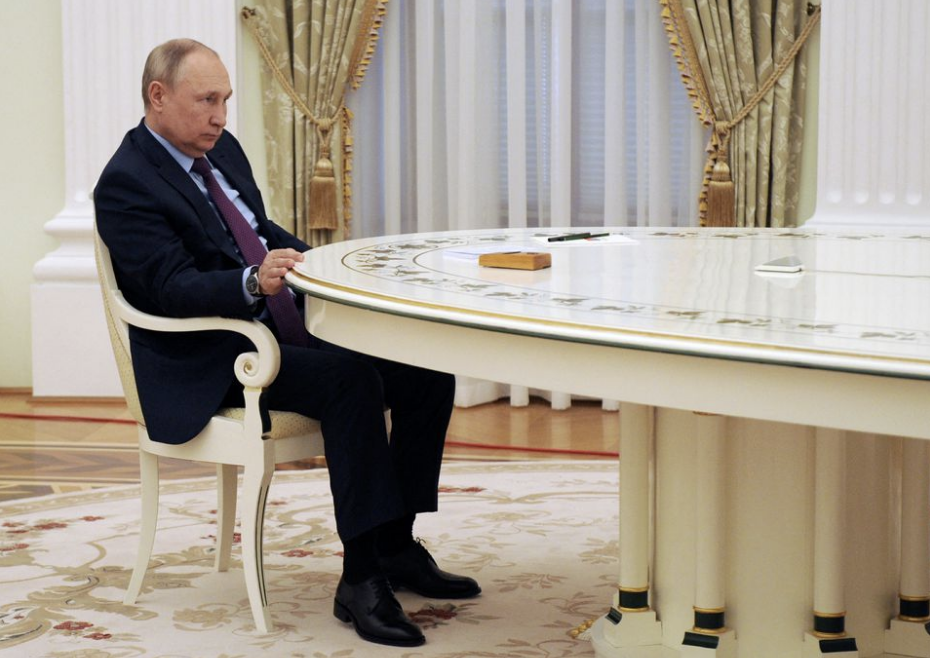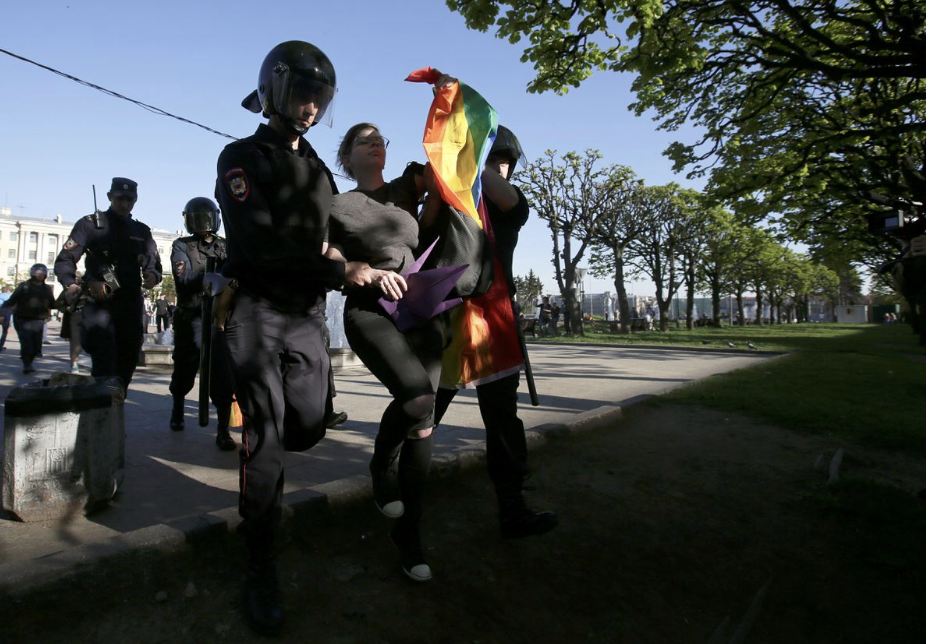Russia's Court Ruling Fines Social Media for LGBT and Pro-Ukraine Propaganda
Russian President Vladimir Putin attended a meeting with Azerbaijan's President in Moscow. Photo: Mikhail Klimentyev/Reuters
On Tuesday, Oct. 4th, the Tagansky district court of Moscow ruled that they will fine TikTok and Twitch for failure to comply with propaganda laws.
The court fined Tiktok after the Beijing-based tech company failed to delete "LGBT" content on the platform, which violated the existing "gay propaganda" law. Twitch, the Amazon-owned mega streaming platform, will face a 4 million rubles fine due to an earlier interview with Ukrainian Presidential Advisor Oleksiy Arestovych hosted by Twitch. Amidst the Russo-Ukrainian war, this ruling corresponds with Putin's effort in the past decade to make Ukraine warfare about protecting "traditional European values."
The ruling is a part of the long-running dispute between Moscow courts and Big Tech, which spans data storage, privacy, and penalties for rule-breaking content–the core issue of Tuesday's decision that resulted in TikTok's 3 million Ruble fine. The Tagansky District Court accused TikTok of "promoting non-traditional values, LGBT, Feminism and a distorted representation of traditional sexual values" and failing to comply in deleting those content later. On the other hand, Twitch's case was in response to the interview on the streaming platform with Oleksiy Arestovych, an adviser to Ukrainian President Volodymyr Zelenskyy.
Putin's government has repeatedly stated the importance of cultural warfare, especially by describing "anti-Russia western liberal values" as the "fifth column." The legal foundation for the latest penalties over social media content is an example. At the beginning of Russia's invasion of Ukraine, Russia passed a war censorship law that prohibits "discrediting" the armed forces. The bill built the foundation to accuse Twitch of spreading misinformation about Russia's "special military operation" in Ukraine.
Russia's gay propaganda law, passed in 2013, is another attempt to reshape the nation's military action into a force upholding traditional values. According to Mackinnon from Foreign Policy, the LGBTQ Russian community has long been Putin's target to justify aggression and cultural warfare against the west. The address in the Grand Kremlin Palace by Russian President Vladimir Putin mentioned gay and transgender rights as one of the core reasons for rejecting the "neocolonial system" created by the Western world. Following Putin's return to the presidency in 2012, the gay propaganda law was passed. While identifying as LGBTQ is not outlawed, the 2013 bill enforces a ban on the "promotion of nontraditional sexual relations" to minors.
Police officers detained a participant of an LGBT activist-held-ally in central Saint Petersburg. Photo: Anton Vaganov/Reuters
The gay propoganda law during the Russo-Ukraine warfare was the Russian parliament's subsequent attempt,, to expand the lawto apply to adults, demonstrating a tactic to gain popular support for aggression. In fact, the conservative political leaders in Europe, the United States, and East Ukraine have shown no condemnation or even support based on the same justification–Russia's aggression and Putin's strongman approach are reasonable if it is to reject nontraditional sexual relations and uphold the orthodox value. Thomas Sherlock from West Point and Lionel Beehner from Bard College pointed out that the rate hikes and the upcoming recession might fuel conservatives in the US who agree with the similar value to oppose any future military aid to Ukraine.
However, it is more likely that this propaganda is still primarily only a message geared toward the domestic conservative community to gain popular support for military actions. In reality, Big Tech has been a major hub for liberal and progressive communities. Communities, such as the recently ended O4U Tech and the upcoming O4UB, also show that the prominent queer community in Silicon Valley is unlikely to die out. The policy will more likely intimidate Russia's LGBT community and reinforce conservative messages, instead of serving as a foreign policy strategy.
Russian officials publicly claimed that the latest media penalties are aiming to defend morality in the face of un-Russian values from the west. The only certain thing is that the aggression in eastern Europe is and will continue to be intertwined with cultural values as Pride parades and opposing marches keep happening under Russia' Shadow in the area.


